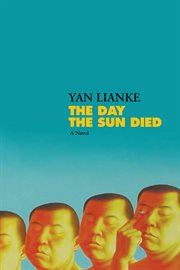Fiction
eBook
Details
PUBLISHED
Made available through hoopla
DESCRIPTION
1 online resource
ISBN/ISSN
LANGUAGE
NOTES
An unforgettable tale of a village that descends into a sleepwalking spell as the sun threatens to never rise again, by the author of Discovering Fiction. Yan Lianke has secured his place as contemporary China's most essential and daring novelist, "with his superlative gifts for storytelling and penetrating eye for truth" (New York Times Book Review). His newest novel, The Day the Sun Died-winner of the Dream of the Red Chamber Award, one of the most prestigious honors for Chinese-language novels-is a haunting story of a town caught in a waking nightmare. In a little village nestled in the Balou mountains, fourteen-year-old Li Niannian and his parents run a funeral parlor. One evening, he notices a strange occurrence. Instead of preparing for bed, more and more neighbors appear in the streets and fields, carrying on with their daily business as if the sun hadn't already set. Li Niannian watches, mystified. As hundreds of residents are found dreamwalking, they act out the desires they've suppressed during waking hours. Before long, the community devolves into chaos, and it's up to Li Niannian and his parents to save the town before sunrise. Set over the course of one increasingly bizarre night, The Day the Sun Died is a propulsive, darkly sinister tale from a world-class writer. A New York Times Book Review Editors' Choice Named Best Book of the Year at Publishers Weekly Named Best Fiction in Translation Selection by Kirkus Reviews An Amazon Best Book of the Month "[The Day the Sun Died is] the creepiest book I've read in years: a social comedy that bleeds like a zombie apocalypse . . . Yan's understated wit runs through these pages like a snake through fallen leaves . . . Invokes that fluid dream state in which everything represents something else, something deeper . . . A wake-up call about the path we're on." -Ron Charles, Washington Post "Floats between surrealism, sci-fi, horror, and absurdism, while never letting go of its satirical eye. Yet the language and structure of the novel reads more like Samuel Beckett or James Joyce than it does The Handmaid's Tale." -Ploughshares
Mode of access: World Wide Web







